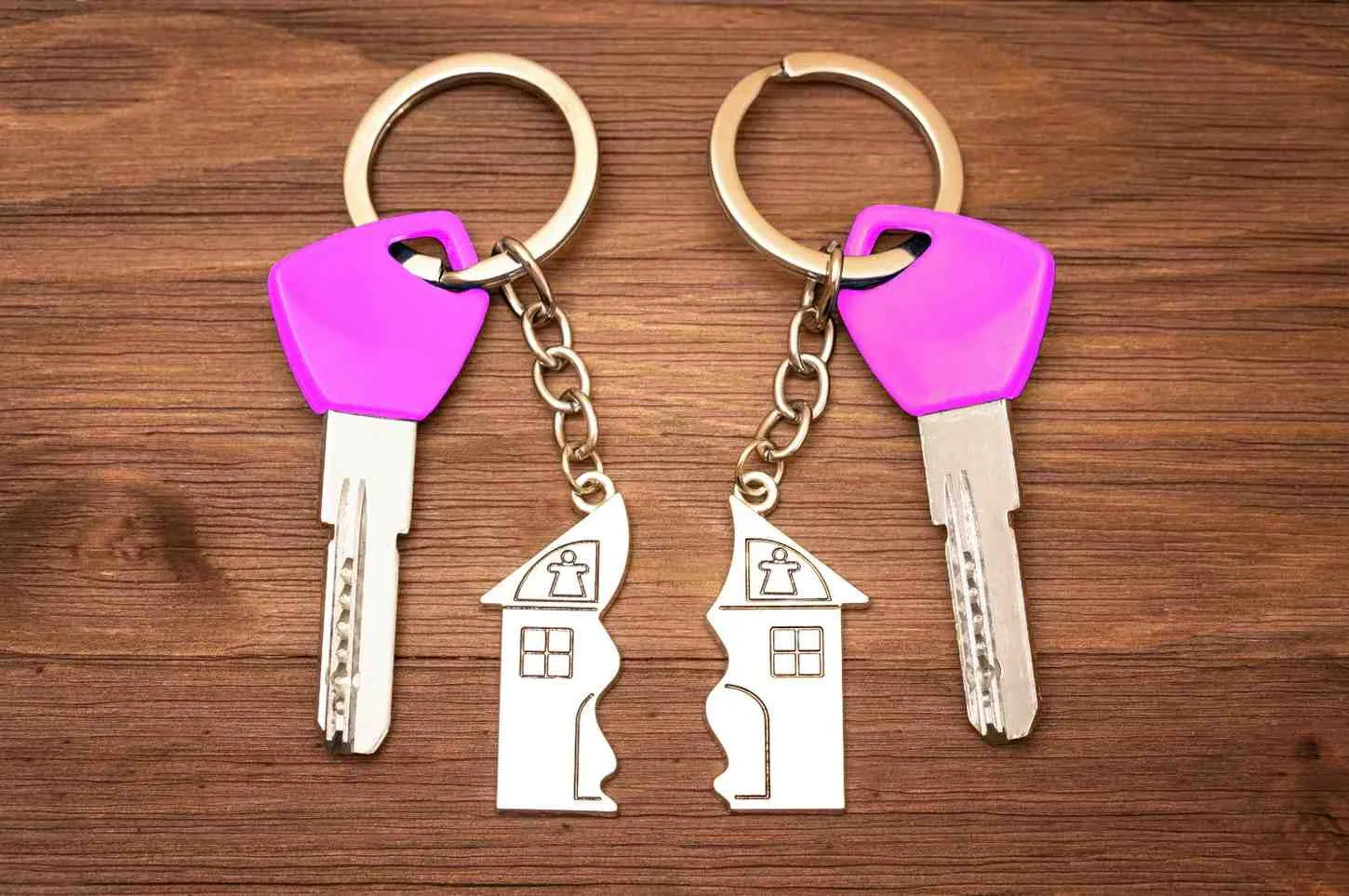At Nye Family Law, we know firsthand that ending a marriage is never just about emotions—it’s about protecting your future. One of the biggest challenges divorcing couples face is dividing their assets. It’s not just about who gets the house or the car; it’s about establishing a solid financial foundation for the next chapter of your life. As an experienced Mesa Asset Division Attorney, we’re here to help you navigate complex financial matters and safeguard what matters most.
Arizona is a community property state, meaning that the law generally assumes most property acquired during the marriage belongs to both spouses in equal shares. But that doesn’t mean every case is simple or that the split is always 50/50. Working with an experienced property division lawyer in Mesa can help you navigate this complicated process and avoid costly mistakes.
Arizona’s Community Property Law Explained
Understanding Arizona’s property division laws is essential before heading into settlement discussions or court proceedings. Under A.R.S. § 25-211, Arizona classifies all assets and debts acquired during the marriage as “community property” unless proven otherwise. This includes:
- Salaries and wages earned during marriage
- Real estate purchased during marriage
- Retirement accounts and pensions accrued
- Businesses established or expanded during marriage
- Debts like mortgages, credit cards, and loans
Separate property, which is not divided during a divorce, includes anything owned before the marriage, gifts, inheritances, and personal injury settlements (excluding lost wages or medical expenses paid during the marriage).
Even though Arizona law requires an “equitable” division, that doesn’t always mean splitting everything down the middle. The court considers a variety of factors to determine fairness, which is why having a skilled divorce attorney in Mesa, AZ, is so crucial.
Just a Call Away
Common Asset Division Issues We See
Over the years, our divorce law firm in Mesa has helped numerous clients navigate complex property issues. Some of the most frequent challenges include:
Commingled Property
It’s common for separate and community property to become mixed, especially in long marriages. For example, if you owned a home before marriage but used community funds to pay the mortgage or make improvements, the house may now have both separate and community interests. Tracing contributions and proving ownership can get complicated fast.
Retirement Accounts
Pensions, IRAs, 401(k)s, and other retirement accounts earned during the marriage are considered community property. Dividing these accounts often requires a Qualified Domestic Relations Order (QDRO). Mistakes here can result in tax penalties or the loss of benefits if not appropriately handled.
Business Ownership
If one or both spouses own a business, dividing the value can be highly complex. Determining the business’s worth may involve forensic accountants, business appraisers, and careful negotiations. It’s critical to distinguish between personal goodwill (which may not be divided) and enterprise goodwill (which usually is).
Hidden Assets
Unfortunately, not everyone plays fair during divorce proceedings. We’ve seen cases where one spouse tries to hide assets, underreport income, or transfer property to friends or family. We aggressively investigate these tactics to ensure full disclosure and protect our clients’ rights.
How the Court Divides Property in Arizona
If you and your spouse can’t agree on how to divide your property, the court will decide for you. In doing so, judges generally apply the following principles:
- Fairness: Equitable division may not be exactly 50/50. The court may award more property to one spouse if it’s deemed fair under the circumstances.
- Debt Responsibility: Both spouses share liability for community debts, but the court can assign responsibility unequally based on financial ability and other factors.
- Fault Not Considered: Arizona is a no-fault divorce state. The court does not consider misconduct like infidelity when dividing property—only financial misconduct, such as wasting marital assets.
According to a 2023 report by the Arizona Judicial Branch, over 68% of divorce cases involving property disputes required court intervention because the parties were unable to reach an agreement on their own.
This underscores why it’s vital to work with an experienced Mesa asset division attorney who can skillfully negotiate or, if necessary, fiercely advocate for you in court.
Someone recommended this law firm and I was there just checking on prices and see what they could do for me. As soon as I talked to them, I felt so supported! I knew right away that I had found the perfect attorneys for my case. Everything is going smoothly
~ Laura Lucia Gavila
Very good lawyer Highly recommended
~ Victor Barrera
A: A very professional lawyer, with effective results and a wealth of experience. I highly recommend him.
~ Leticia Calvillo
I am grateful to the lawyer because now I am in the process of legalizing myself thanks to them and the payment opportunity continues to advance.
~ Yassir Frank
It was incredible to have received help from Nye Family Law. They helped me obtain my residency, providing solutions and answers to all my questions. They handled my case in a very detailed and professional manner. There was great …
~ Heivy Bueno
I went through a very delicate problem regarding my daughter, the state took her away from me, they gave me the address of attorney Nye, he was very kind to me, he received me like a friend, luckily for me he speaks Spanish very well and I …
~ Carlos jose Lopez Bermúdez
Tips to Prepare for Asset Division
We encourage all of our clients to be proactive. Preparing early can significantly strengthen your position and streamline the process. Here’s what we recommend:
- Inventory All Assets and Debts: List everything you and your spouse own and owe, regardless of whose name is on it.
- Gather Documentation: Collect tax returns, bank statements, retirement account statements, property deeds, mortgage documents, and insurance policies.
- Consider Future Needs: Think about your long-term financial stability, not just immediate desires.
- Avoid Big Financial Moves: Don’t hide assets, transfer money, or make large purchases before or during the divorce, as it could have legal repercussions.
- Stay Civil: Emotional battles over property can increase legal costs and prolong the divorce process. Focus on your financial goals, not revenge.
When you work with a property division lawyer in Mesa from our team, we help you gather and organize this information to build the strongest case possible.
Special Considerations in High-Asset Divorces
High-net-worth individuals face even more complicated property division challenges. We frequently handle cases involving:
- Multiple real estate holdings
- Complex investment portfolios
- Business partnerships or ownership interests
- Stock options, restricted stock units (RSUs), and other deferred compensation
- International assets
- Trusts and estate planning issues
In such cases, proper valuation, tax planning, and strategic negotiation are crucial to safeguard your wealth. We partner with valuation experts, forensic accountants, and tax advisors to ensure no asset is overlooked and that you aren’t unfairly burdened with hidden liabilities.
What Happens to the Family Home?
The marital home often represents the most emotionally charged—and financially significant—asset. Arizona courts may award the home to one spouse, order it sold and the proceeds divided, or grant exclusive use to a parent who has primary custody of the children.
Factors courts consider include:
- Whether either spouse can afford to keep the home
- Whether minor children would benefit from staying in the home
- Each party’s overall financial situation
We work closely with our clients to evaluate whether keeping the home is financially feasible and aligned with their long-term best interests.
How Nye Family Law Can Help You

- Thoroughly identify and value all marital and separate property
- Strategically advocate for your financial goals
- Craft settlement proposals that protect your long-term interests
- Vigorously litigate property disputes when necessary
- Guide you through the entire divorce process with compassion and confidence
We know the stakes are high. Whether you’re fighting for your business, your home, or your retirement savings, our divorce law firm in Mesa stands ready to fight for you.
Frequently Asked Questions About Mesa Asset Division Attorney
What happens to debts during asset division?
In Arizona, debts are treated the same way as assets, meaning any debt incurred during the marriage is generally considered community debt, regardless of whose name is on the account. This includes credit cards, medical bills, and mortgages. The court will divide debts equitably, but creditors may still pursue either spouse for repayment if the debts are jointly held.
Can my spouse get part of my inheritance?
Generally, inheritances are considered separate property, even if received during the marriage. However, if you mixed (commingled) your inheritance with joint accounts or used it for community expenses, your spouse could claim a share. Careful documentation is key to preserving your separate interest.
How are personal injury settlements handled in property division?
It depends on what the settlement compensates. In Arizona, compensation for personal pain and suffering is usually considered separate property. However, portions of a settlement for lost wages (earned during the marriage) or medical expenses paid from community funds could be regarded as community property and subject to division.
What if we agree on how to divide our property?
If both spouses agree on the division of assets and debts, you can submit a settlement agreement to the court. As long as the deal is fair and meets Arizona’s legal standards, the court is likely to approve it. We often assist our clients in negotiating and drafting these agreements to ensure clarity and enforceability.
Is property division different for short marriages?
Yes. In very short marriages, courts may attempt to restore spouses to their original financial positions, focusing more on what each party brought into the marriage. However, any property or debts accumulated during the marriage still require fair division under Arizona law.
Protect Your Financial Future Today
Dividing property during a divorce is one of the most important financial events of your life. Don’t leave it to chance or rely on verbal agreements that may not provide adequate protection in the long run. At Nye Family Law, we have extensive experience handling complex and contested asset division cases throughout Mesa and the surrounding areas.
If you’re looking for a divorce attorney in Mesa, AZ, who can help you achieve the best possible outcome, contact us today to schedule a confidential consultation. Let’s work together to ensure that your rights, assets, and future are protected every step of the way.



